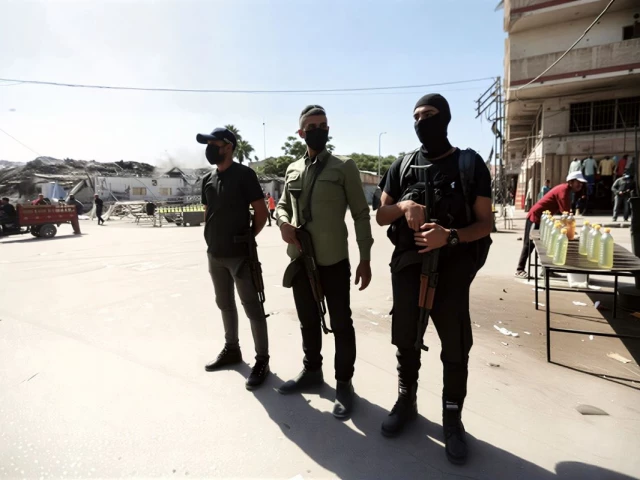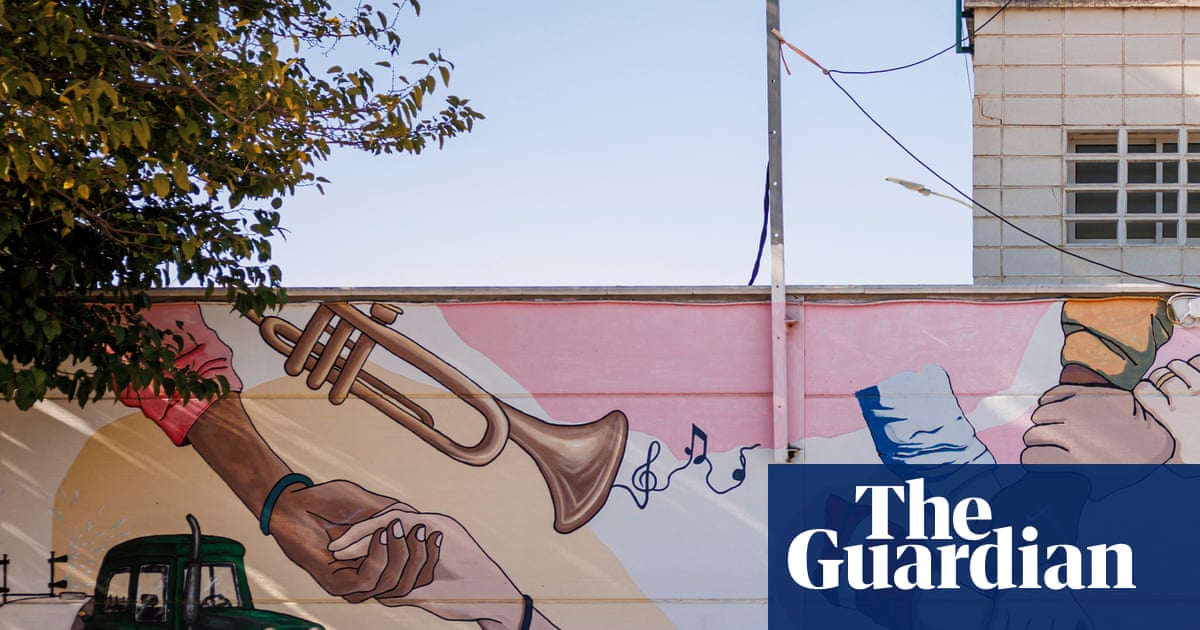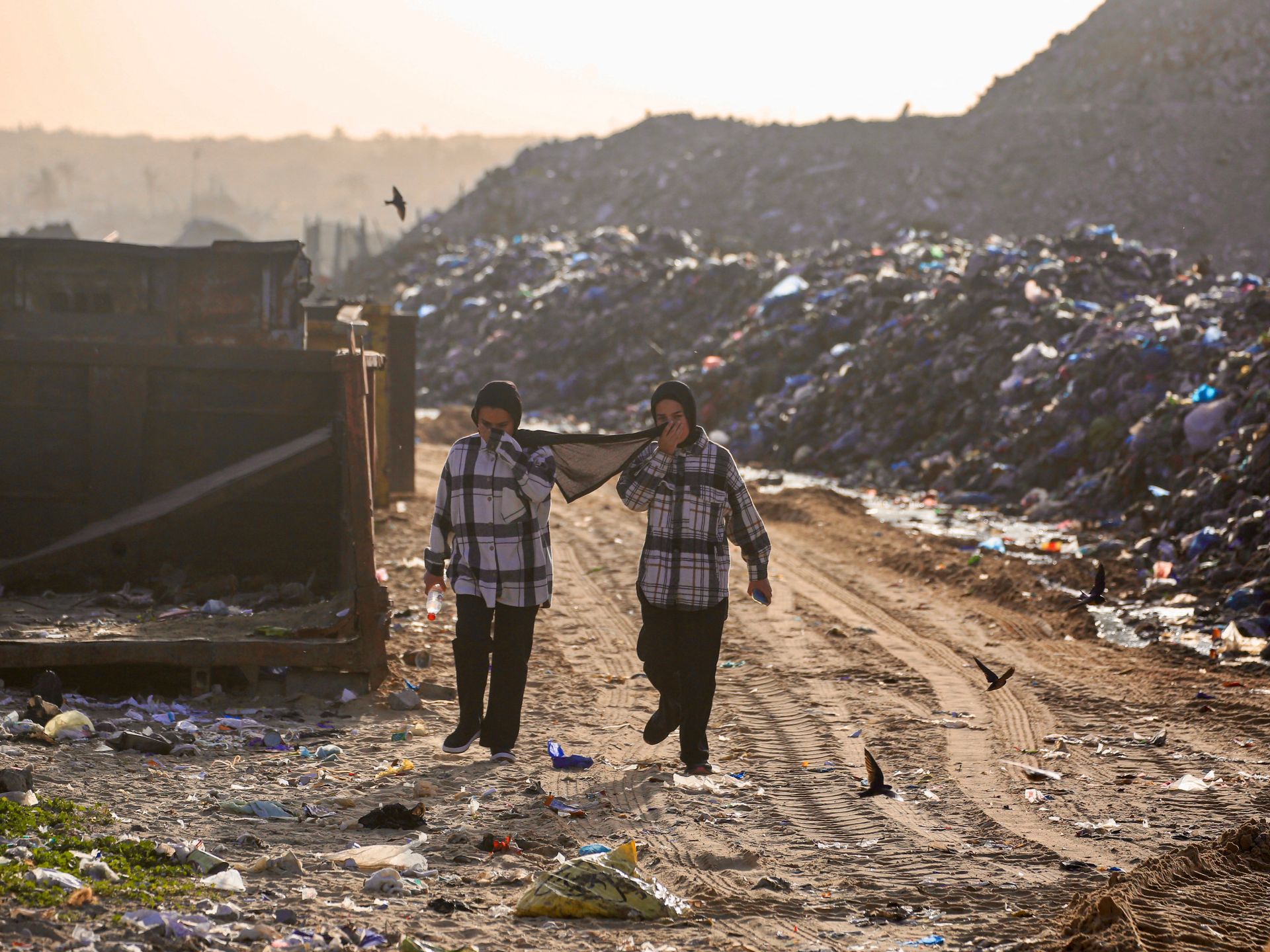- ‘Crying horse’ toys go viral in China ahead of Lunar New Year BBC
- Stable genius? How a defective ‘crying horse’ toy went viral in China The Guardian
- Chinese workers rush to buy botched toy that embodies ‘corporate slavery’ Yahoo
- How a…
Category: 2. World
-

'Crying horse' toys go viral in China ahead of Lunar New Year – BBC
-
Syria hopes to hold new integration talks with Kurdish forces on Tuesday – Al Arabiya English
- Syria hopes to hold new integration talks with Kurdish forces on Tuesday Al Arabiya English
- Syrian army offensive overjoys some, leaves others with ‘existential’ fear Al Jazeera
- Syria peace deal at risk as government forces and Kurdish…
Continue Reading
-

Hamas seeks role for its police in Gaza ahead of disarmament talks, sources say
A 20-point plan calls for Gaza governance to pass to the US-backed NCAG, a technocratic body excluding Hamas
Hamas police officers stand guard, amid a ceasefire between Israel and Hamas, in Gaza City, October 11, 2025. REUTERS
…Continue Reading
-

Spain approves decree to regularise half a million undocumented migrants | Spain
Spain’s socialist-led coalition government has approved a decree it said would regularise 500,000 undocumented migrants and asylum seekers, rejecting the anti-migration policies and rhetoric prevalent across much of Europe.
The decree, expected…
Continue Reading
-

The Take: Inside Gaza after Israel’s last captive is found | News
PodcastPodcast, The Take
With the body of the final Israeli captive returned, Palestinians are waiting to see if Israel will implement a true ceasefire.
Published On 27 Jan 2026
The remains…
Continue Reading
-

French lawmakers approve bill banning social media for children under 15
PARIS — French lawmakers approved a bill banning social media for children under 15, paving the way for the measure to enter into force at the start of the next school year in September, as the idea of setting a minimum age for use of the…
Continue Reading
-
Saudi CMA approves new controls on real estate ownership – Global Regulation Tomorrow
- Saudi CMA approves new controls on real estate ownership Global Regulation Tomorrow
- Saudi Developers Jump as Kingdom Moves to Open Property Market Bloomberg.com
- ZAWYA-PRESSR: Deloitte drives future of real estate innovation at REFF 2026 in…
Continue Reading
-
General ejection: China’s military purge – The Economist
- General ejection: China’s military purge The Economist
- Zhang Youxia: Purge of China’s top general leaves military in crisis BBC
- Exclusive | China’s Top General Accused of Giving Nuclear Secrets to U.S. – WSJ The Wall Street Journal
- Fate of…
Continue Reading
-
Chinese defense minister holds video talk with Russian counterpart
BEIJING, Jan. 27 (Xinhua) — Chinese Defense Minister Dong Jun held a video talk with Russian Defense Minister Andrey Belousov on Tuesday.
Dong said China stands ready to work with Russia…
Continue Reading
-
Bangladesh: Protect journalists during the election – ARTICLE 19 – Defending freedom of expression and information.
- Bangladesh: Protect journalists during the election ARTICLE 19 – Defending freedom of expression and information.
- After a long career at the heart of Bangladeshi journalism, I condemn the new reality: A licence to terrorise the Press
Continue Reading